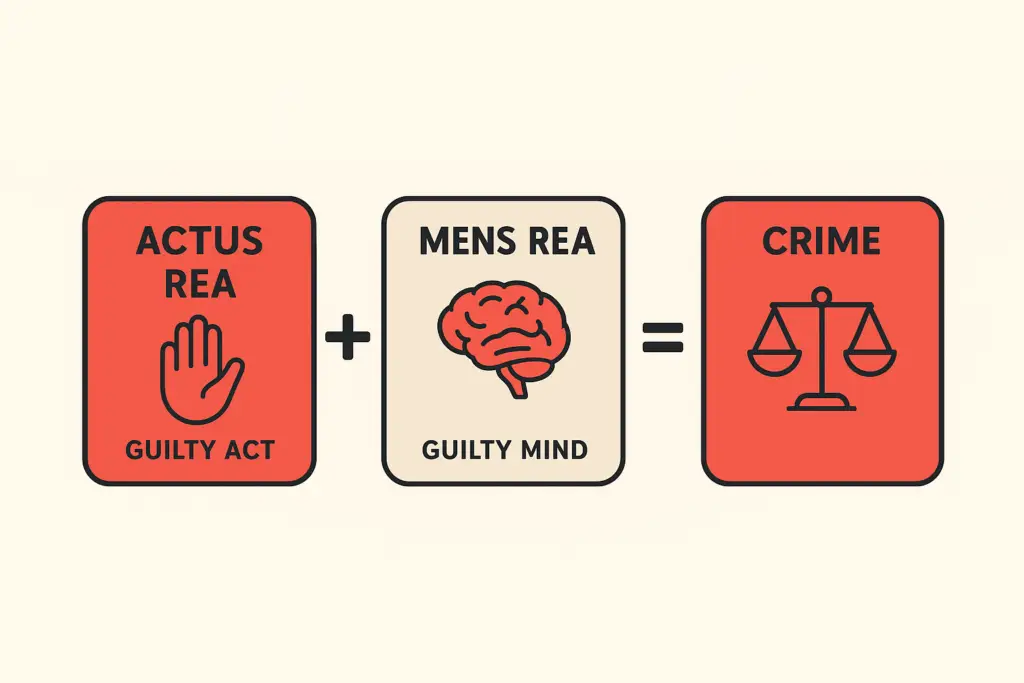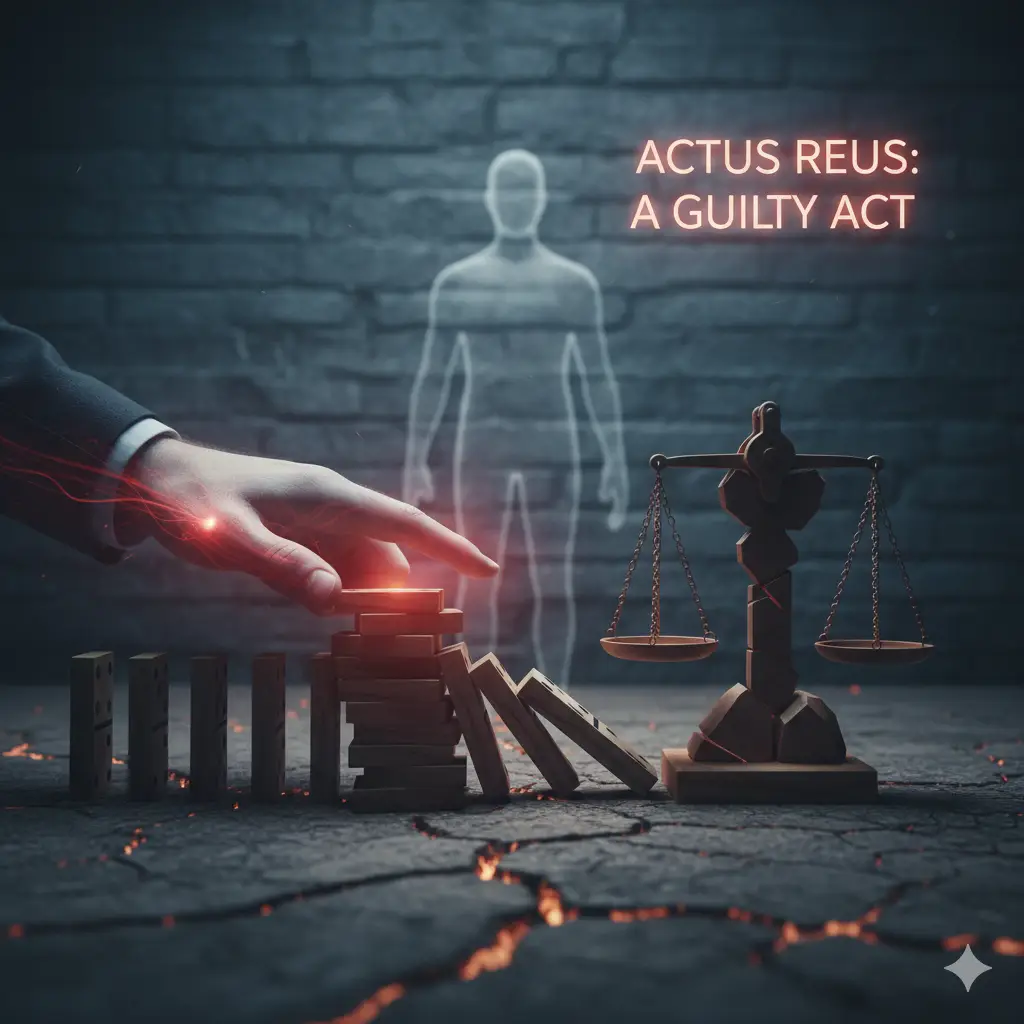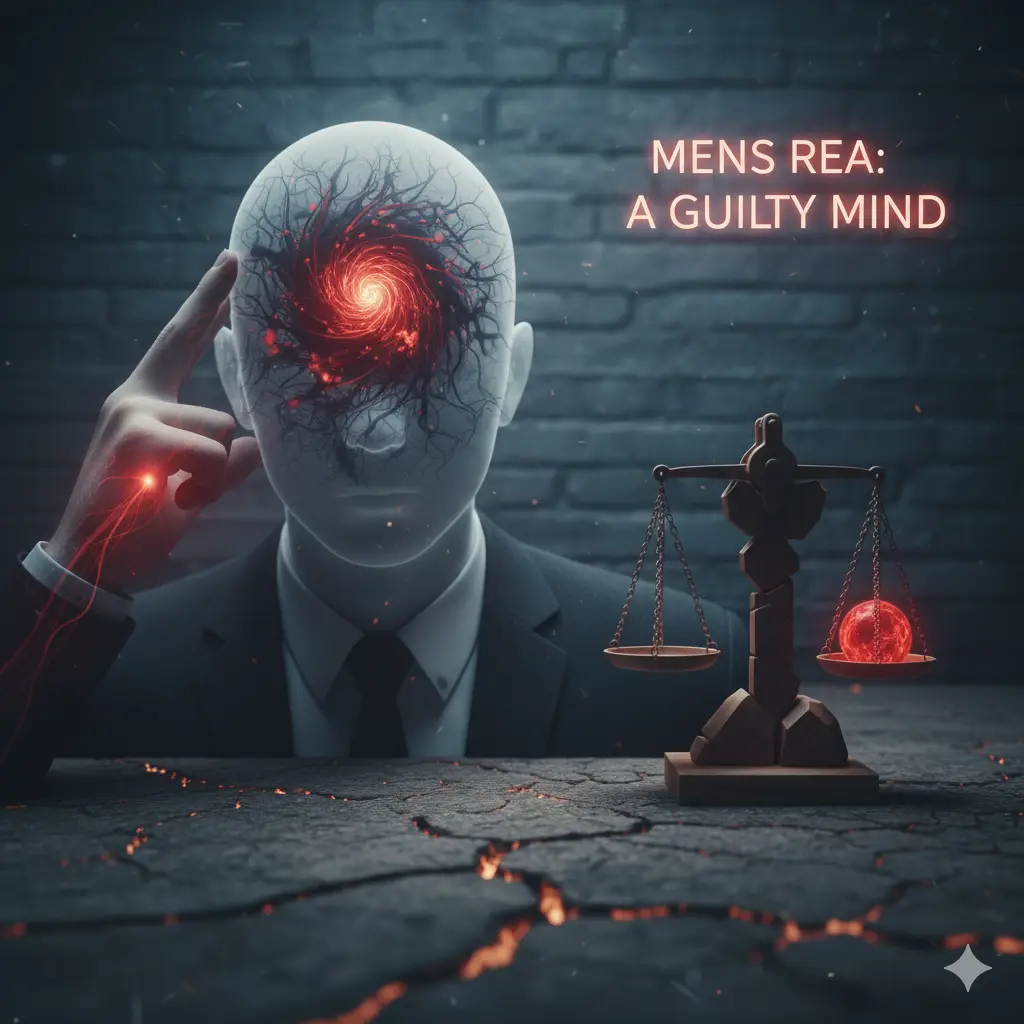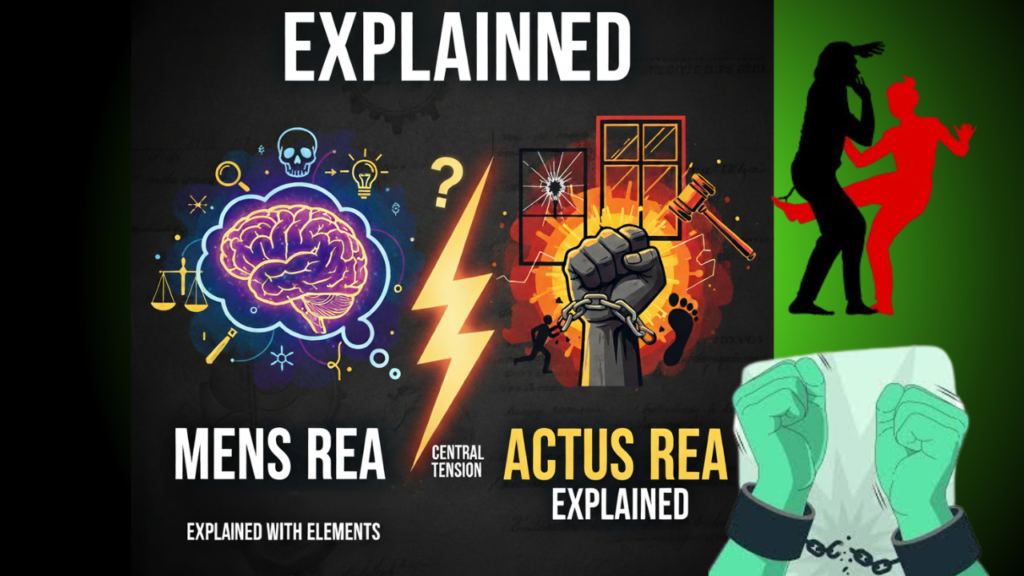“Actus non facit reum nisi mens sit rea” – an act does not make a person guilty unless the mind is also guilty.
Hey there welcome aboard, This article is part of our recent series “EXplained” where we will try to cover every viable aspect of legal principles and there usages.
Law, especially criminal law, is built on two essential pillars: the mental intention to commit a crime and the physical act that brings it into reality.These are known as mens rea (guilty mind) and actus rea (guilty act). Without the combination of both, criminal liability often cannot be established. This principle is summed up in the Latin maxim:

Meaning of Actus Rea
The term actus rea refers to the external or physical component of crime. It includes not just the act itself but also the circumstances and consequences surrounding it.
- Example:If a person strikes another with a stick, the physical act of striking constitutes actus rea.
Elements of actus rea:
- Conduct/act – a voluntary human action.
- Circumstances – the conditions in which the act occurs (e.g., stealing at night).
- Consequences– the harmful result caused (e.g., death in a murder case).

Meaning of Mens Rea
Mens rea is the mental element of crime—the guilty intention, knowledge, recklessness, or negligence that accompanies the act.
- Example: Accidentally stepping on someone’s foot is not a crime, but kicking them deliberately with the intention to hurt is.
Degrees of mens rea:
- Intention – deliberate desire to bring about harm.
- Knowledge – awareness that one’s act is likely to cause harm.
- Recklessness – consciously disregarding a risk.
- Negligence – failure to exercise reasonable care.

Interplay Between Mens Rea and Actus Rea
For most crimes, the concurrence of both elements is necessary.
- If actus rea exists without mens rea → generally no crime (e.g., accidents).
- If mens rea exists without actus rea → no crime, though attempt or conspiracy may apply.
- Crime is complete only when the guilty act is backed by a guilty mind.
Exceptions to the Requirement of
Mens Rea
There are certain offences called strict liability offences where proving mens rea is not necessary. These exist mainly for public welfare.
- Examples:
- Selling adulterated food.
- Traffic violations.
- Offences under environmental and taxation laws.
Judicial Interpretations
- State of Maharashtra v. Mayer Hans George (1965): The Supreme Court held that in certain statutory offences, mens rea may not be required if the law clearly excludes it.
- R v. Prince (1875): The court convicted a man who took a girl under 16, even though he believed she was above 18, holding that intention was irrelevant under the statute.
- R v. Tolson (1889): A woman remarried believing her husband was dead. Court acquitted her, recognizing absence of mens rea.
Illustrations
- Murder Case
- Actus rea: Killing a person by stabbing.
- Mens rea: Intention to kill or cause grievous harm.
- Accident Case
- Actus rea: Car hitting a pedestrian.
- Mens rea: If caused by reckless driving → crime. If caused despite due care → no crime.
- Non Natural use Of
Importance in Criminal Law
- Ensures fairness – people are punished for blameworthy conduct, not mere accidents.
- Distinguishes between innocent acts and criminal acts.
- Helps courts determine appropriate punishment based on the level of intention.

